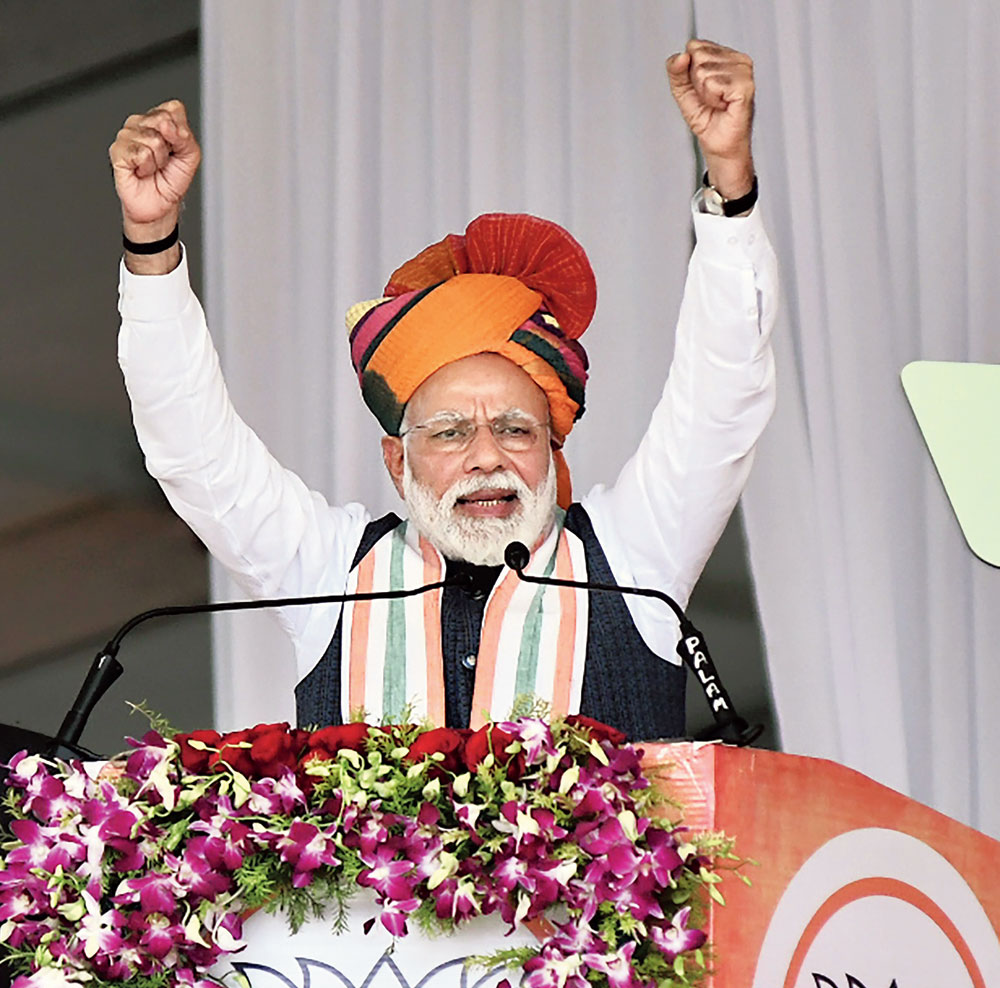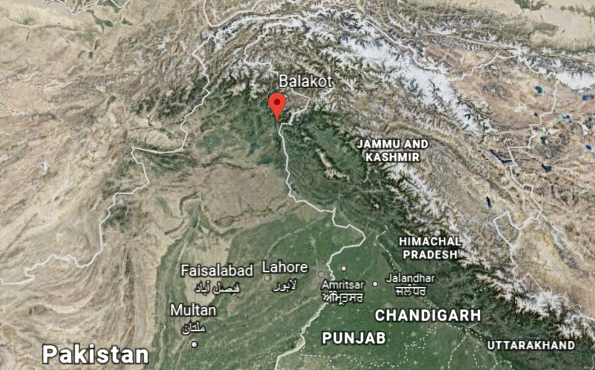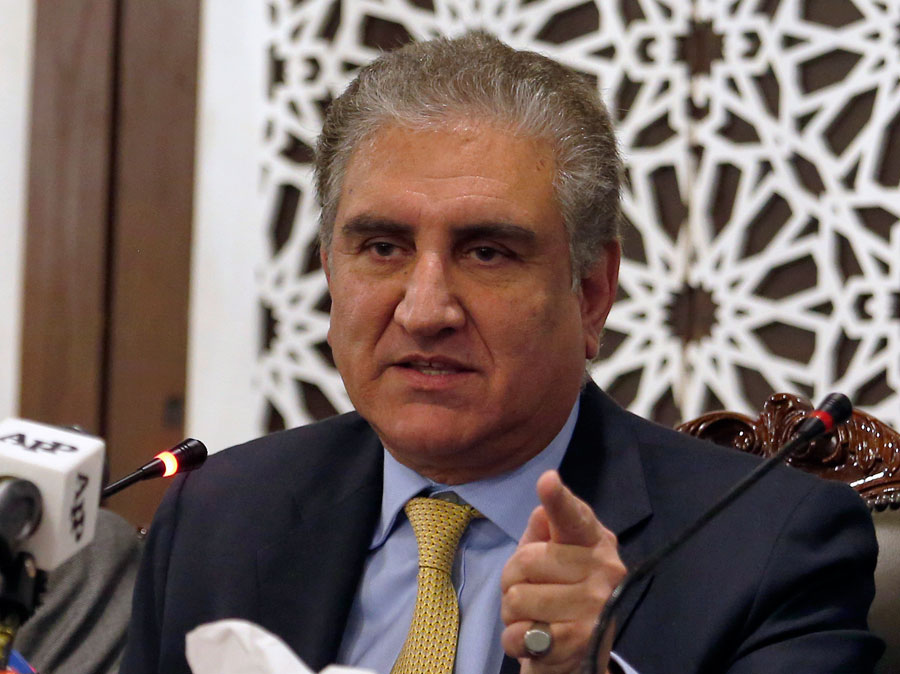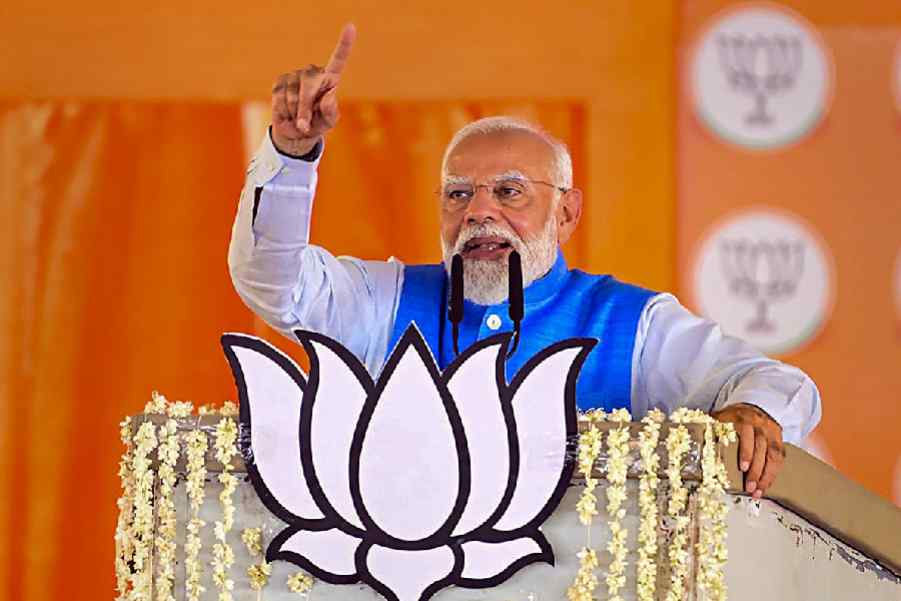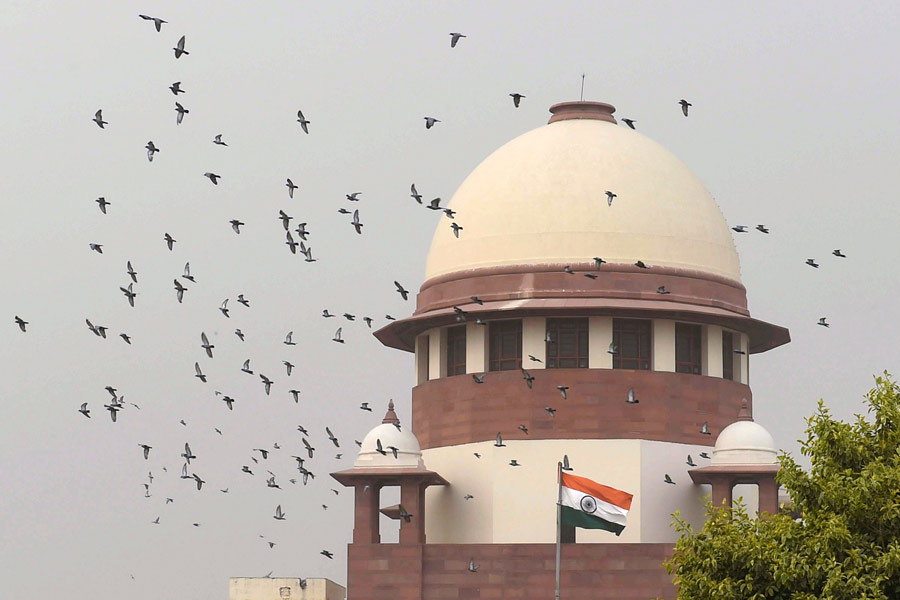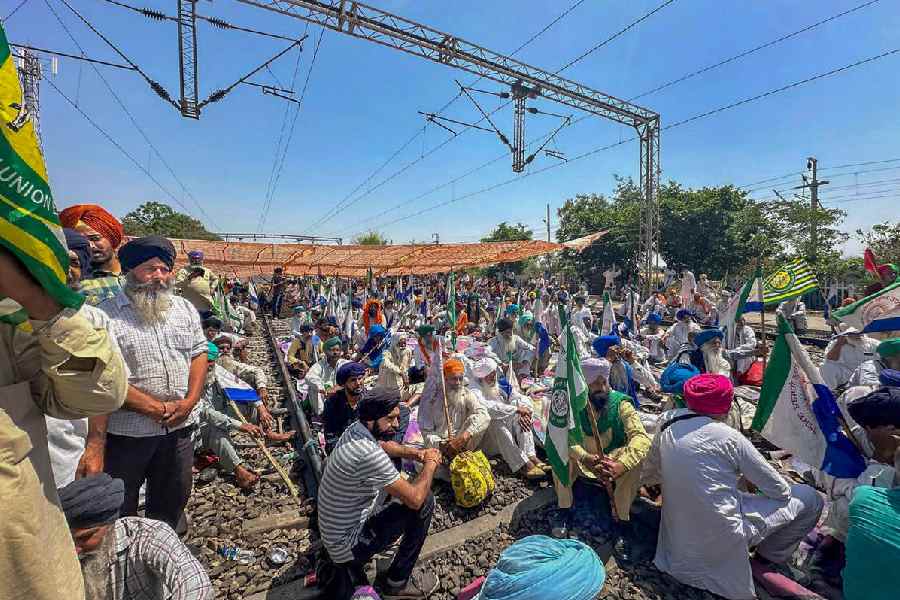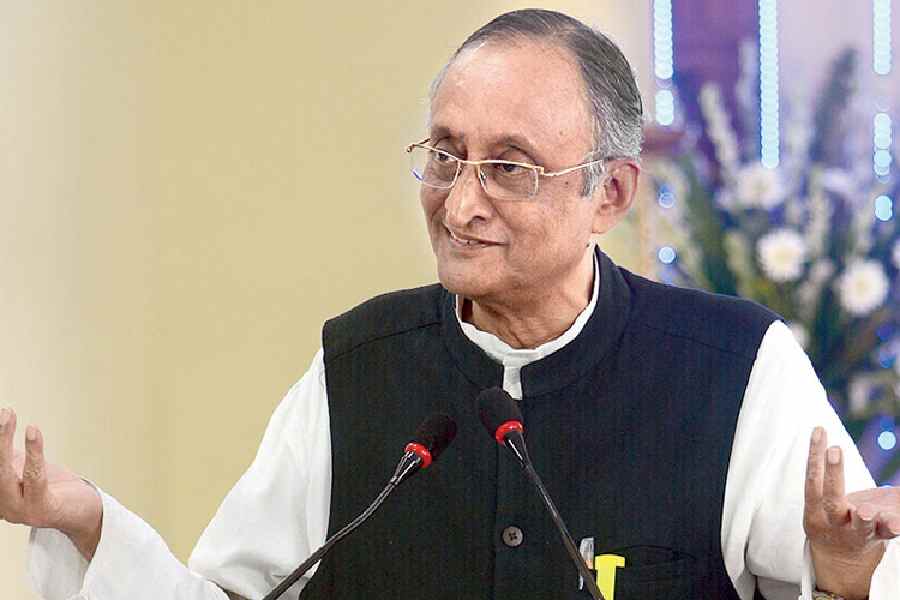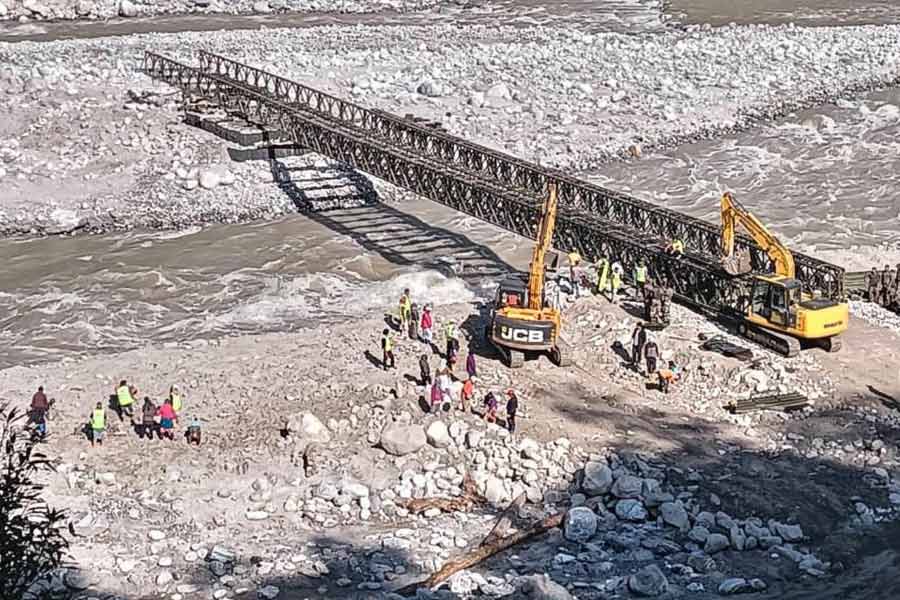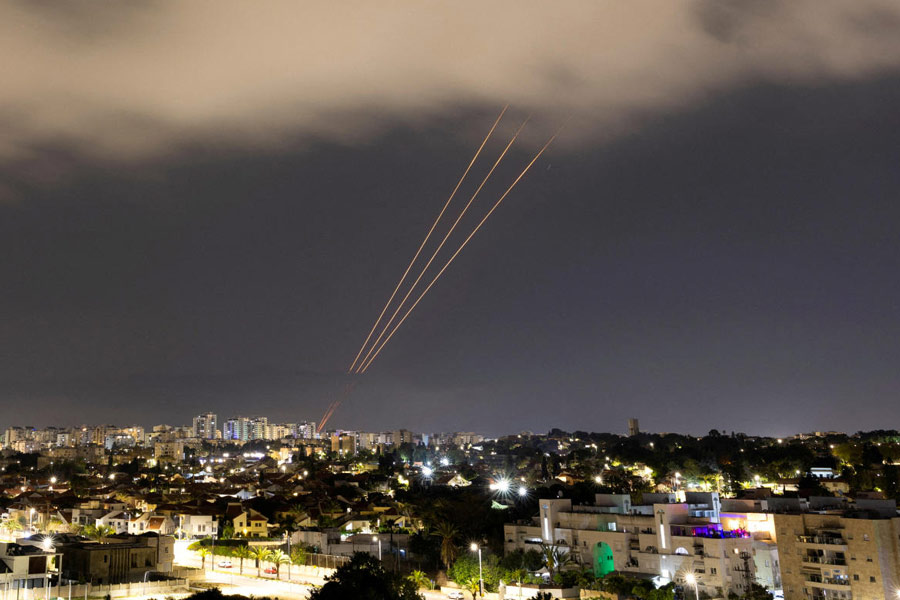India has said it carried out pre-emptive strikes on the biggest training camp of the Jaish-e-Mohammed at Balakot in Pakistan on Tuesday morning and backed up the operation immediately with a diplomatic outreach aimed at de-escalation after Islamabad resolved to respond at a time and place of Pakistan’s choosing.
India officially described the operation as “non-military” and “intelligence-led”, and the readout made no mention of an air strike, the involvement of the Indian Air Force or crossing the Line of Control in the raid that took place 12 days after the Pulwama massacre and in the run-up to the general election.
But sources said Mirage 2000 fighters were involved, which would mean it was the first Indian Air Force operation inside Pakistan since the 1971 war.
The purported strike site, Balakot — around 50km from the frontier and 60km north of Abbottabad where Osama bin Laden was killed — suggests that it was the deepest cross-border raid launched by India since 1971.
Indian sources said around 350 terrorists and their trainers were killed in the raid, a claim that was rejected by Pakistan. One of the few points on which the two sides agreed, either on record or off the record, was that Indian air power did enter Pakistan territory.
International media initially expressed fears of an escalation, especially after Pakistan Prime Minister Imran Khan scheduled on Wednesday a meeting of the National Command Authority, which manages the nuclear arms there. Subsequently, several reputable publications felt that the differing positions (New Delhi claiming heavy losses for Pakistan and Islamabad insisting it suffered little damage) might offer room for de-escalation unless hotheads on both sides dominate the decision-making.
Domestic pressure is at play in Pakistan, too. As in the case of the US operation in Abbottabad that took out bin Laden in 2011, the Pakistan armed forces has come under attack internally for not bringing down the Indian fighters. Pakistan was quick to claim that this was not the case, and it was because the Pakistani jets “scrambled” and fired that the Indian fighters left Pakistani airspace within a few minutes.
Through the day, the Indian foreign secretary and other secretaries in the external affairs ministry reached out to the heads of diplomatic missions to maintain that the strike was an act of self-defence, it was led by the intelligence apparatus, not the military, and India had no intention of escalating tensions with Pakistan.
India is understood to have told the diplomats that they should work on Islamabad to ensure against an escalation.
Both sides exchanged fire along the LoC on Tuesday night with India saying it destroyed five Pakistani posts.
Pakistan foreign minister Shah Mahmood Qureshi spoke to US secretary of state Mike Pompeo and other foreign diplomats during the day. Indian foreign minister Sushma Swaraj said she too had spoken to Pompeo.
Indian sources said 12 Mirage 2000 fighters were used in the operation — some as decoy to confuse the Pakistani fighters and allow space to the core team targeting the camp to proceed towards Khyber Pakhtunkhwa — and the fighters spent eight minutes in Pakistani airspace from 3.45am to 3.53am. Local eyewitnesses said they heard the blasts around 3am.
In the only Indian official statement on the operation, foreign secretary Vijay Gokhale said: “Credible intelligence was received that JeM was attempting another suicide terror attack in various parts of the country, and the fidayeen jihadis were being trained for this purpose. In the face of imminent danger, a pre-emptive strike became absolutely necessary.
“In an intelligence-led operation in the early hours of today, India struck the biggest training camp of JeM in Balakot.”
Gokhale added: “In this operation, a very large number of JeM terrorists, trainers, senior commanders and groups of jihadis who were being trained for fidayeen action were eliminated. This facility at Balakot was headed by Maulana Yousuf Azhar (alias Ustad Ghouri) the brother-in-law of JeM chief Masood Azhar.”
Gokhale did not provide the number of casualties but sources claimed that 325 “fidayeen” (suicide) terrorists and 25 commanders had been taken out in the aerial strike on the Jaish training camp.
Gokhale said: “The Government of India is firmly and resolutely committed to taking all necessary measures to fight the menace of terrorism. Hence this non-military pre-emptive action was specifically targeted at the JeM camp. The selection of the target was also conditioned by our desire to avoid civilian casualties. The facility is located in thick forest on a hilltop far away from any civilian presence.”
He underscored that the Jaish was an organisation proscribed by the UN and, therefore, a threat not only to India but also the world.
The government reminded Pakistan of the “solemn commitment” made in January 2004 by then President Pervez Musharraf that the neighbour would not allow Pakistani soil or territory under its control to be used for terrorism against India.
New Delhi listed earlier attacks by the Jaish on India — on Parliament and the Pathankot airbase — and pointed out that Pakistan had remained in denial of the outfit’s camps on its soil despite evidence provided by New Delhi.
That Indian aircraft had entered Pakistani airspace was first announced to the world by Pakistan’s director-general of the Inter Services Public Relations, Maj. Gen. Asif Ghafoor. “Indian Air Force violated Line of Control. Pakistan Air Force immediately scrambled. Indian aircrafts gone back. Details to follow,” he tweeted shortly after 7am.
Later, he tweeted: “Indian aircrafts intruded from Muzaffarabad sector. Facing timely and effective response from Pakistan Air Force released payload in haste while escaping which fell near Balakot. No casualties or damage.”
Since there is a Balakote village in the Poonch sector through which the Line of Control passes, there was confusion in the morning about the location of the strike. Indian sources said it was the one near the Kaghan Valley in Manshera district of Khyber Pakhtunkhwa (formerly the North-West Frontier Province).

